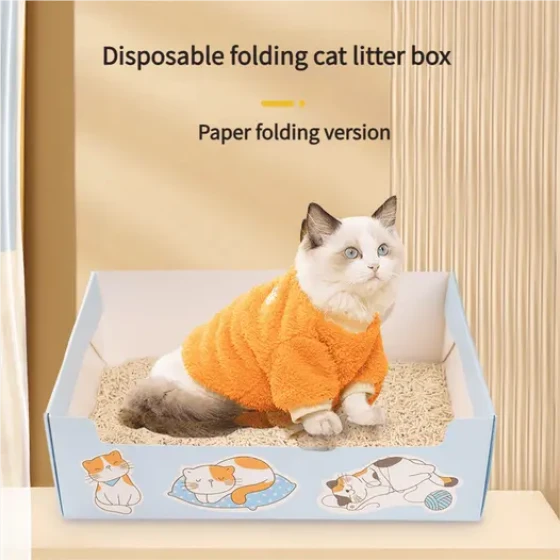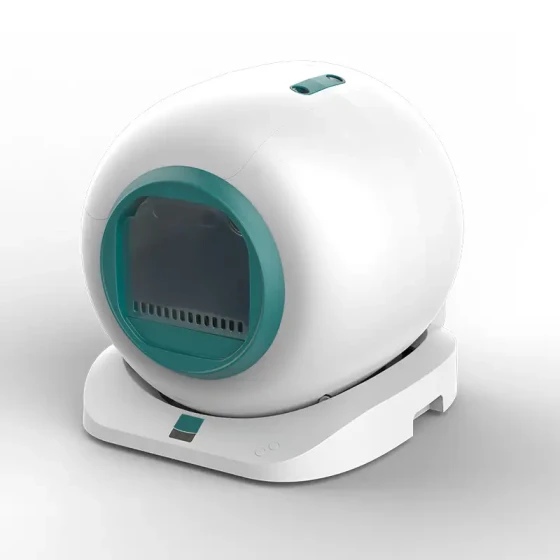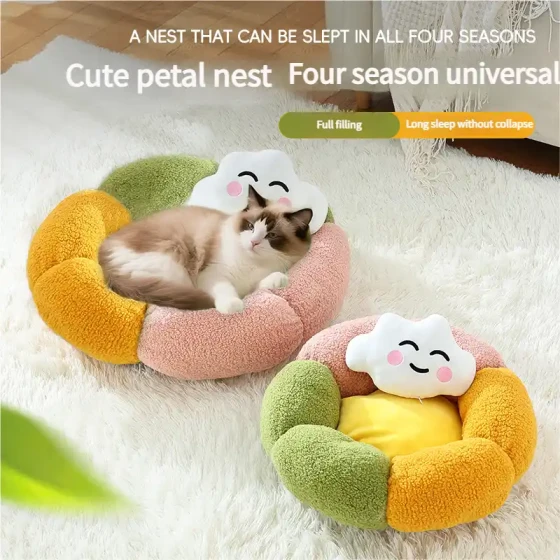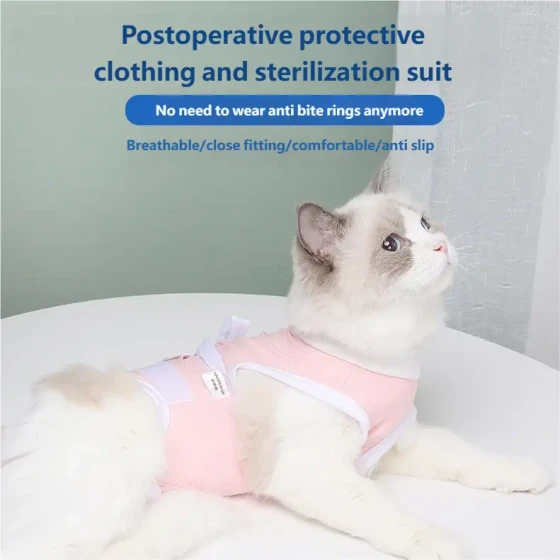What Medicine to Give Cats for Cold, Sneezing, Runny Nose_The Correct Medication Guide for Home Treatment of Cat Colds
When cats show symptoms of sneezing and runny nose, it usually means they may have an upper respiratory infection, commonly known as a "cat cold." In this case, the safest and most responsible approach is to take the cat to see a veterinarian as soon as possible, allowing a professional vet to diagnose the cause and prescribe appropriate medication. Never give cats human cold medicine or other non-veterinarian prescribed drugs on your own, as this may cause serious or even fatal harm to the cat.
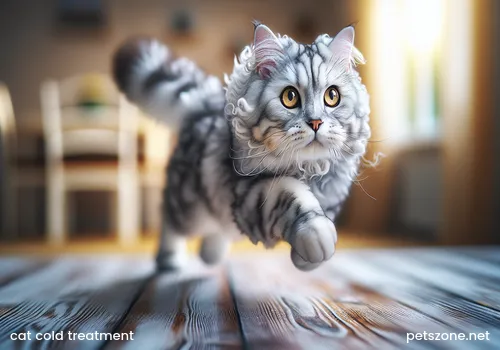
What is a cat cold?
"Cat cold" does not refer to the common cold caused by viruses in humans, but generally to infections of the cat’s upper respiratory system. Common causes include Feline Herpesvirus and Feline Calicivirus, possibly accompanied by secondary bacterial infections. Just like humans experience nasal congestion and runny nose when catching a cold, cats also develop similar symptoms such as:
- Sneezing: This is one of the most common symptoms, which may occur occasionally or continuously.
- Runny nose: Initially, the nasal discharge may be clear and transparent, but as the condition progresses, it may become yellow or green pus-filled mucus.
- Watery eyes/increased eye discharge: The eyes look moist, or there may be discharge at the corners of the eyes, sometimes accompanied by redness and swelling.
- Lethargy: The cat becomes less active and tends to sleep more.
- Loss of appetite: Reduced smell or discomfort may cause the cat to refuse food.
- Fever: The normal body temperature of cats is slightly higher than humans, around 38-39 degrees Celsius. A significant increase indicates possible infection.
When must you take your cat to the vet?
Although mild cat colds may improve on their own with good care, the following situations suggest a more serious illness requiring immediate veterinary attention:
- Complete loss or severe decrease in appetite: If a cat doesn't eat for a long time, its body will weaken rapidly.
- Difficulty or rapid breathing: This is a very dangerous sign, possibly indicating infection has reached the lower respiratory tract.
- Persistent high fever: This means the body is fighting a severe infection.
- Thick yellow or green nasal or eye discharge: Often a sign of secondary bacterial infection.
- Extreme depression, unwillingness to move.
- Symptoms persist or worsen.
- Kittens or elderly cats showing cold symptoms: Their immune systems are relatively weak, making them more prone to severe illness.
What medicine to give a cat with a cold? (Important: please consult a veterinarian!)
There is no "universal medicine" for cat colds that can be given casually. Vets will formulate a treatment plan based on the cat’s specific condition (cause, severity of symptoms, age, and overall health). Possible types of medication include:
- Antiviral drugs: If it is confirmed to be virus-induced, vets may prescribe antiviral drugs to suppress viral replication.
- Antibiotics: If the cold is accompanied by secondary bacterial infection (such as pus-filled nasal discharge), vets will prescribe antibiotics to control the bacterial infection. Note that antibiotics only work on bacteria, not viruses, so their use and choice must be determined by a vet.
- Anti-inflammatory and pain relief drugs: Used to relieve cat discomfort, but note that common human drugs like ibuprofen or acetaminophen are highly toxic to cats and must never be used! Vets use anti-inflammatory and pain medication specially designed for cats.
- Eye drops/ointment: May be prescribed if there is eye discharge or inflammation.
- Expectorants and cough suppressants: May be used if the cat is coughing depending on the condition.
Again, it must be emphasized: all medication types mentioned above must be used under the guidance of a veterinarian, strictly following their dosage and treatment course. Never buy or adjust medication on your own.
Home care guide
Along with following medical advice, good home care can help your cat recover faster:
- Provide a warm and comfortable environment: Ensure the cat’s sleeping area is warm, dry, and free of drafts. Prepare a soft mat or blanket for it.
- Encourage drinking water: Colds cause fluid loss; always provide clean drinking water. If the cat dislikes water, try giving canned food (high water content) or broth (salt-free, no seasoning).
- Keep clean: Gently wipe the cat’s eye and nose discharge with a warm damp cloth or cotton ball to keep passages clear.
- Use a humidifier: Like humans, humid air can ease nasal congestion in cats. Use a humidifier in the cat’s room or create steam in the bathroom and let the cat stay briefly (ensure the cat does not get too cold or overheated).
- Provide easily digestible, aromatic food: The cold may affect the cat’s sense of smell and appetite. Choose warm, aromatic, and easy to digest foods like cat canned food or special recovery diets. Smaller, more frequent meals may be better.
- Reduce stress: Provide a quiet environment, avoid frightening or overplaying the cat, and let it rest peacefully.
Frequently Asked Questions
- Q: Can I give my cat human cold medicine?
- A: Absolutely not! Human cold medicines contain ingredients that are safe for humans but highly toxic to cats, potentially causing liver and kidney damage, poisoning, or even death. Always consult a vet.
- Q: Can cat colds be transmitted to humans?
- A: Usually not. The pathogens causing cat colds mostly target felines and rarely infect humans. However, the infection is highly contagious among cats, so if you have multiple cats, isolate the sick ones and disinfect the environment.
- Q: How long does a cat cold generally last?
- A: Mild cat colds may improve within 1-2 weeks with good care. If secondary infection or serious illness occurs, recovery will take longer and requires active veterinary treatment.
- Q: How to prevent cat colds?
- A: Vaccination is one of the most effective ways to prevent cat colds (especially viral upper respiratory infections). Common feline trivalent vaccines include components against Feline Herpesvirus and Feline Calicivirus. Maintaining a clean living environment, avoiding stress, and providing balanced nutrition also help strengthen immunity.
Summary
Sneezing and runny nose are common symptoms in cats, likely due to upper respiratory infections. Although home care helps, the most important step is to seek veterinary care promptly and follow professional diagnosis and medication advice. Using the right medication under veterinary guidance, combined with detailed home care, will help your beloved cat recover quickly and regain health and vitality. Remember, being responsible for your cat's health starts with not misusing medication!
